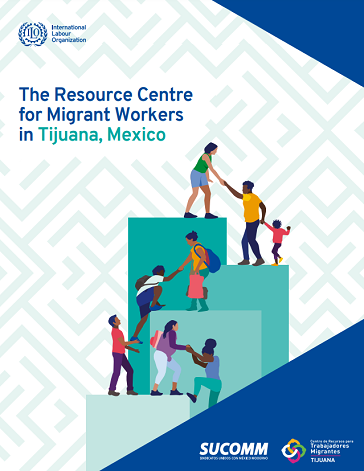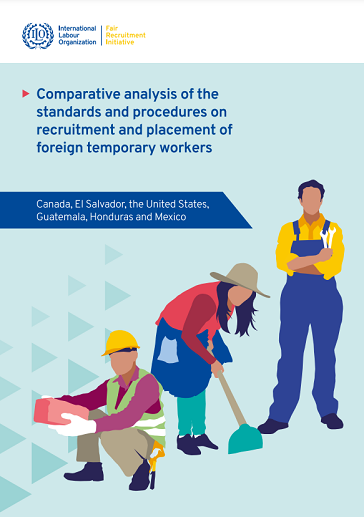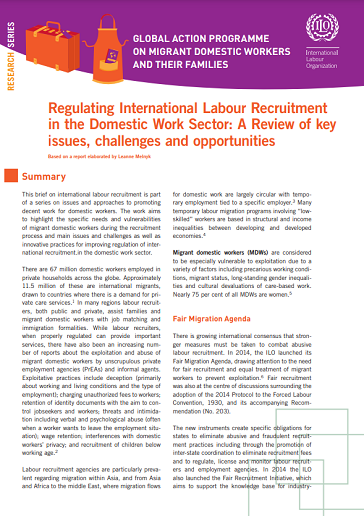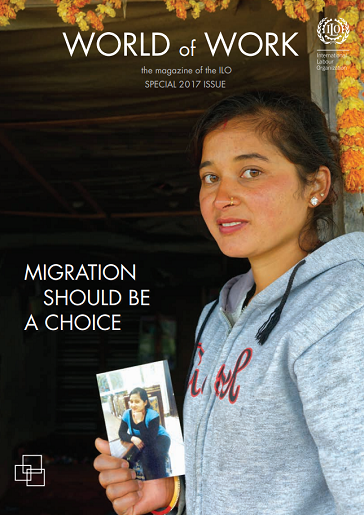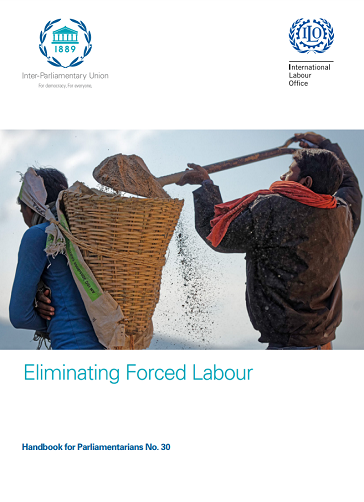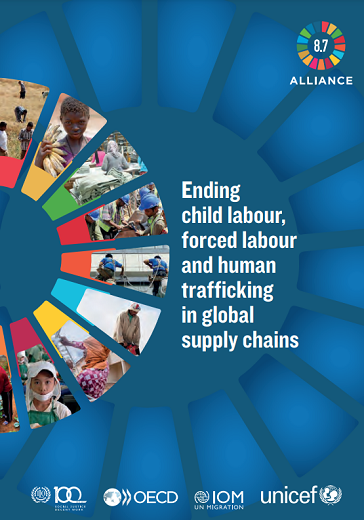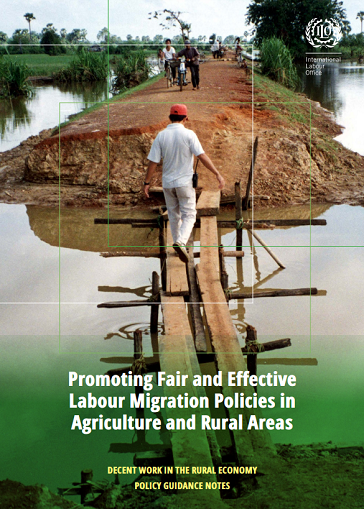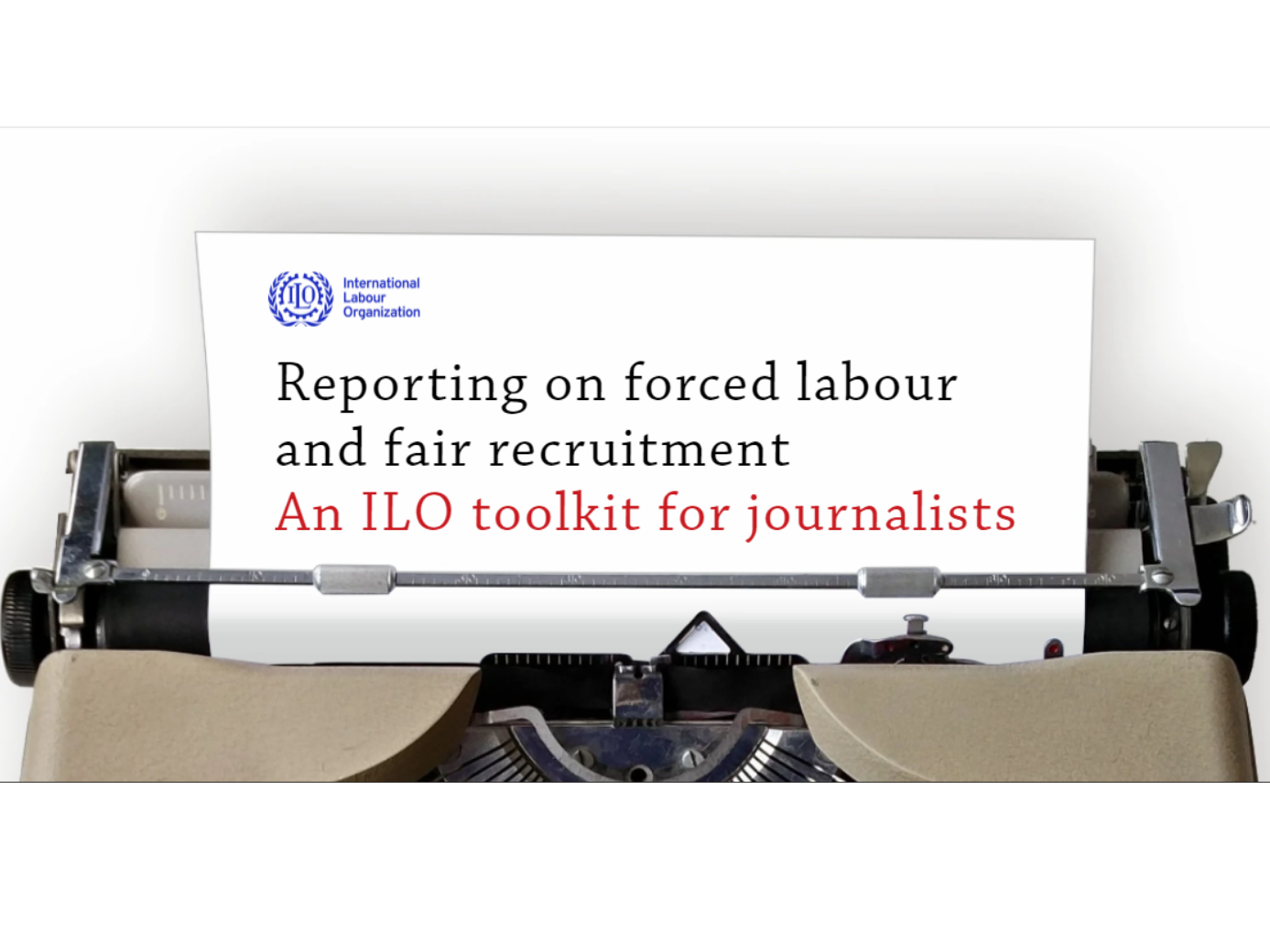Drogba warns about African footballers’ dreams that turn into nightmares
Posted at July 5th 2023 12:00 AM | Updated as of July 5th 2023 12:00 AM
Region/Country :
|Themes : , ,
ILO Webinar on Public Employment Services: an insight into different good practices
Posted at July 4th 2023 12:00 AM | Updated as of July 4th 2023 12:00 AM
Region/Country : , , ,
|Themes : ,
The Resource Centre for Migrant Workers (RCMW) in Tijuana, Mexico
Systematization of the experience of the RCMW. Recommendations to improve their services and to replicate the model in Mexico and Central American countries.
Type of document :
Country/Region :
Year of publication :
Theme : , , , ,
Comparative analysis of the standards and procedures on recruitment and placement of foreign temporary workers: Canada, El Salvador, the United States, Guatemala, Honduras and Mexico
This study compiles, analyses and synthesizes the different national and international regulations and procedures that countries apply to the recruitment and placement of temporary foreign temporary workers; and it also presents lessons learned and key practices. In the case of Canada, the document includes the provinces of Ontario, Manitoba, Alberta, British Columbia, Saskatchewan and Quebec.
Type of document :
Country/Region : , , , , , ,
Year of publication :
Theme : , , ,
Regulating international labour recruitment in the domestic work sector: A review of key issues, challenges and opportunities
Based on a report written by Leanne Melnyk. It addresses the process of international recruitment of workers and highlights both the specific needs and vulnerabilities faced by migrant domestic workers, as well as the main issues and challenges, and innovative practices for better regulation of international recruitment in the domestic work sector.
Type of document :
Country/Region :
Year of publication :
Theme : , , , , ,
World of Work magazine: Migration should be a choice
The 2017 edition of the World of Work magazine highlights themes discussed by the ILO’s 106th International Labour Conference (ILC), including labour migration and fair recruitment.
Type of document :
Country/Region :
Year of publication :
Theme : , , , ,
Eliminating forced labour: Handbook for parliamentarians No. 30
Effective legislation and regulations on recruitment processes, for both national and migrant workers, help to curtail forced labour and trafficking. Beyond adopting or amending legislation on recruitment, parliamentarians can request the adoption of implementing decrees and hold the government accountable for monitoring implementation. Promoting fair recruitment practices, and averting the occurrence or risk of forced labour through the recruitment process, must be a fundamental part of any forced labour prevention strategy.
This handbook, co-published with the Inter-Parliamentary Union (IPU), aims to help parliamentarians to make their contribution to global efforts to effectively combat the scourge of forced labour.
Type of document :
Country/Region :
Year of publication :
Theme : ,
Ending child labour, forced labour and human trafficking in global supply chains
Promoting fair recruitment is a critical priority in the context of both international and internal migration. As discussed in PART 1, a key finding of recent ILO research is that recruitment abuses – and in particular the payment of illegal recruitment fees and related costs – are one of the main ways in which forced labour and human trafficking enters supply chains.
The adoption of laws and regulations to help ensure that workers and jobseekers are not charged recruitment or related costs, or subjected to other recruitment-related abuses – addressed in the Global Compact for Safe, Orderly and Regular Migration and international legal standards – is therefore critical to broader efforts against forced labour and human trafficking.
Type of document :
Country/Region :
Year of publication :
Theme : , , , , ,
Promoting fair and effective labour migration policies in agriculture and rural areas
Migrant workers make an important contribution to the growth and development of rural areas, and more particularly the agriculture sector. However, they face pervasive decent work deficits, which include informality; a lack of opportunities for skills development and recognition, income security, social protection coverage and portability of benefits; and exposure to work-related accidents. Furthermore, they are vulnerable to forced and child labour, human trafficking and unethical recruitment, and – especially in the case of migrant women workers – experience discriminatory treatment.
The ILO endeavours to forge policies to maximize the benefits of labour migration for rural economies around the world, while ensuring the good governance of labour migration and the respect of human and labour rights.
Type of document :
Country/Region :
Year of publication :
Theme : , ,
Reporting on forced labour and fair recruitment: An ILO toolkit for journalists
This toolkit provides information and advice to media professionals on how to report accurately and effectively on forced labour and fair recruitment. The toolkit includes the Media-friendly glossary on migration.
This toolkit is available in: Arabic, English, French, Spanish.
The toolkit has been adapted to the national context in:
-
Nepal (English)
-
Nigeria (forthcoming)
-
Pakistan (English)
- Uganda (forthcoming)
-
Viet Nam (English, Vietnamese).
Click on each language to open the corresponding toolkit.
Type of document :
Country/Region : , , , , , , ,
Year of publication :
Theme : , ,
Subscribe to the Fair Recruitment Initiative Newsletter
Sign up to receive news delivered to your inbox.

